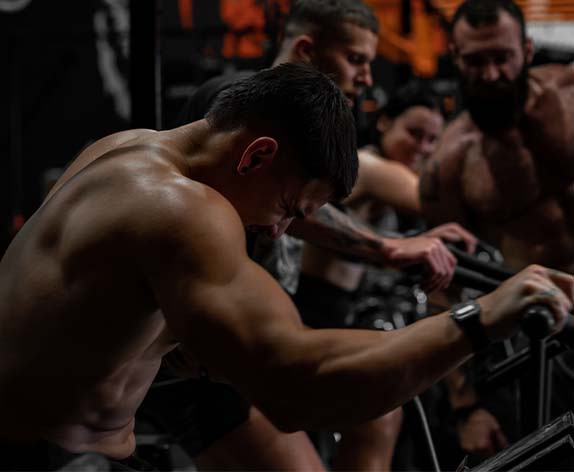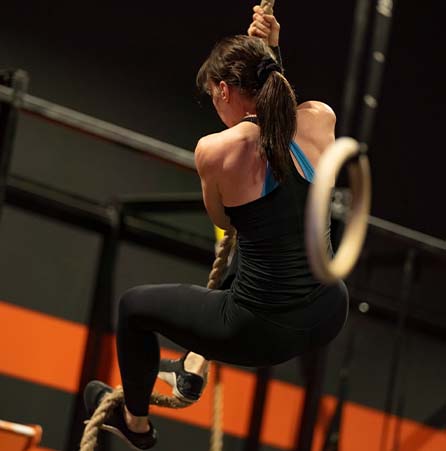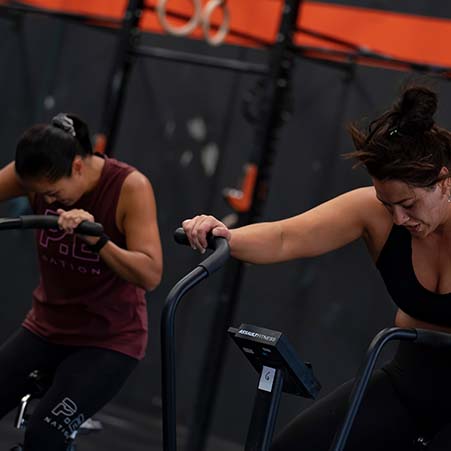CrossFit has gained immense popularity for its high-intensity workouts and diverse exercises that push athletes to their limits. While the physical demands of CrossFit are well understood, the importance of nutrition in supporting performance and recovery often doesn’t get the attention it deserves. Proper nutrition plays a critical role in maximising results, preventing injuries, and ensuring overall well-being for those engaged in CrossFit training.
Fuel for Performance
CrossFit workouts are known for their intensity, requiring a significant amount of energy to perform optimally. The body needs adequate fuel to meet these demands, and this fuel primarily comes from carbohydrates. Carbohydrates are the body’s preferred source of energy, especially during high-intensity activities like CrossFit. They are broken down into glucose, which muscles use for energy during workouts.
To ensure peak performance, it is crucial for athletes to consume an adequate amount of carbohydrates. This means including sources like whole grains, fruits, and vegetables in the diet. Timing also plays a key role—eating carbohydrates before a workout provides the necessary energy, while consuming them after helps replenish glycogen stores, aiding in recovery.
Protein for Muscle Repair and Growth
Protein is another essential nutrient for CrossFit athletes. The intense nature of CrossFit training leads to muscle breakdown, making protein crucial for repair and growth. Protein provides the building blocks, known as amino acids, needed to repair damaged muscle tissues and promote muscle synthesis.
Incorporating high-quality protein sources such as lean meats, fish, eggs, and plant-based options like beans and legumes can help ensure that the body has what it needs for muscle recovery. For those engaged in frequent and intense CrossFit sessions, it may be beneficial to include protein in each meal and snack throughout the day to support ongoing recovery and muscle maintenance.
Fats for Sustained Energy
While carbohydrates are important for quick energy, fats provide a longer-lasting source of fuel, especially during prolonged or less intense workouts. Healthy fats, such as those found in avocados, nuts, seeds, and olive oil, support overall health and are a key component of a balanced diet for CrossFit athletes.
In addition to providing energy, fats play a role in hormone production, including those that regulate metabolism and muscle growth. Therefore, it’s essential not to overlook the importance of including healthy fats in the diet to support both performance and recovery.
Hydration for Optimal Performance
Hydration is another critical aspect of nutrition that directly impacts CrossFit performance. Dehydration can lead to decreased strength, endurance, and cognitive function, all of which are detrimental during a high-intensity workout. Furthermore, the intense nature of CrossFit often leads to significant fluid loss through sweat, making it vital to replenish fluids regularly.
Athletes should aim to stay hydrated throughout the day by drinking water consistently, not just during workouts. Electrolyte-rich beverages can also be beneficial, especially during longer or more intense sessions, as they help replace sodium, potassium, and other minerals lost through sweat.
Timing and Meal Planning
The timing of meals and snacks is crucial for CrossFit athletes to ensure they have the energy needed for training and recovery. Pre-workout meals should focus on providing easily digestible carbohydrates and some protein to fuel the upcoming workout. This could be a small meal or snack consumed about 30 minutes to an hour before the session.
Post-workout nutrition is equally important. Consuming a meal or snack rich in carbohydrates and protein within 30 minutes to two hours after a workout helps replenish glycogen stores and supports muscle recovery. This period is often referred to as the “anabolic window,” where the body is most efficient at absorbing nutrients.
Supplements: A Complement to a Balanced Diet
While whole foods should form the foundation of a CrossFit athlete’s diet, supplements can play a role in supporting performance and recovery. Common supplements used by CrossFit athletes include protein powders, branched-chain amino acids (BCAAs), creatine, and omega-3 fatty acids. However, it’s important to remember that supplements are meant to complement a balanced diet, not replace it.
Before incorporating any supplements into a diet, athletes should consult with a healthcare provider or a nutritionist to ensure they are appropriate for their individual needs and training goals.
The Role of Micronutrients
Micronutrients, including vitamins and minerals, play a supporting role in maintaining overall health and enhancing performance. For example, calcium and vitamin D are vital for bone health, which is particularly important for CrossFit athletes given the high-impact nature of many exercises. Iron is essential for oxygen transport in the blood, which can impact endurance during workouts.
A diet rich in a variety of fruits, vegetables, lean proteins, and whole grains typically provides sufficient micronutrients. However, some athletes may need to pay extra attention to specific nutrients, especially if they follow a restrictive diet or have increased needs due to the intensity of their training.
Avoiding Common Pitfalls
While nutrition is essential for CrossFit success, there are common pitfalls that athletes should avoid. One such pitfall is under-eating, which can lead to fatigue, poor performance, and increased risk of injury. CrossFit athletes often require more calories than the average person due to the high energy expenditure of their workouts, so it’s important to ensure adequate caloric intake.
Another pitfall is neglecting recovery nutrition. Focusing only on pre-workout meals and neglecting post-workout recovery can impede muscle repair and lead to longer recovery times. It’s essential to treat nutrition as a full-day process, with attention to both pre- and post-workout needs.
Final Words
Nutrition is a critical component in any CrossFit athlete’s training regimen. It provides the energy required for high-intensity workouts, supports muscle repair and growth, and ensures overall well-being. By focusing on a balanced diet that includes adequate carbohydrates, proteins, fats, and hydration, CrossFit athletes can enhance their performance and recovery, allowing them to push their limits safely and effectively.
Ready to take your CrossFit training to the next level? Get in touch with us at RFX CrossFit to learn more about how we can support you in achieving your best performance.





